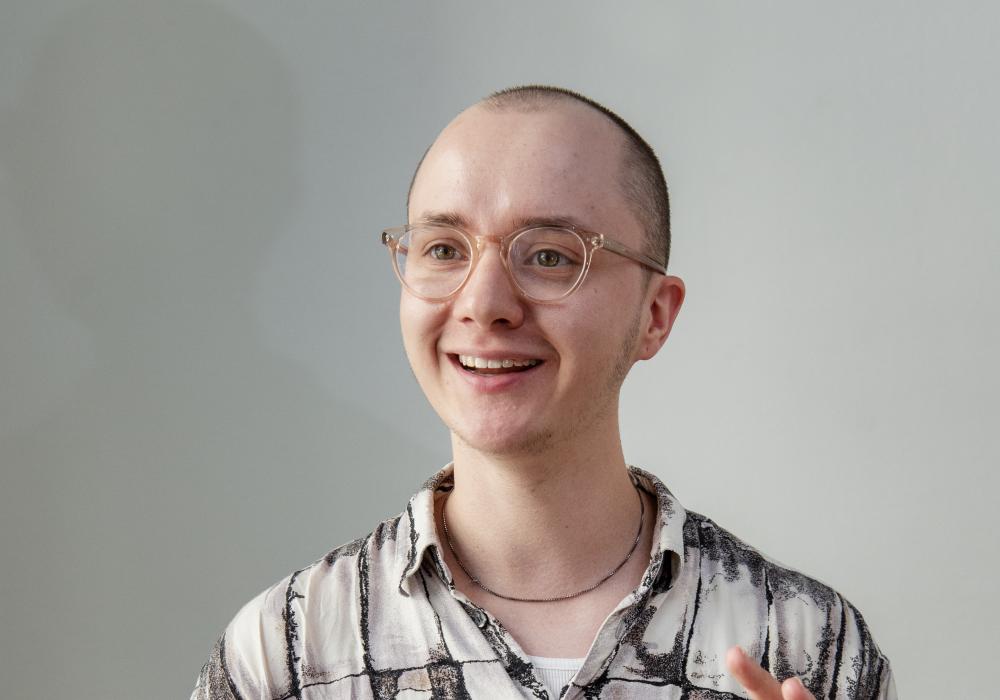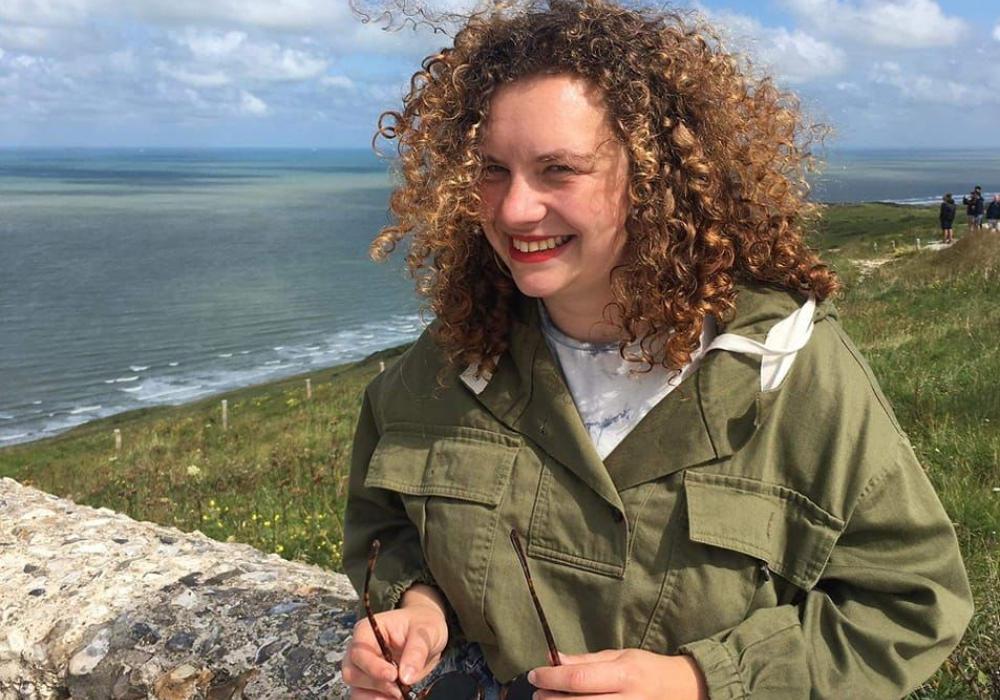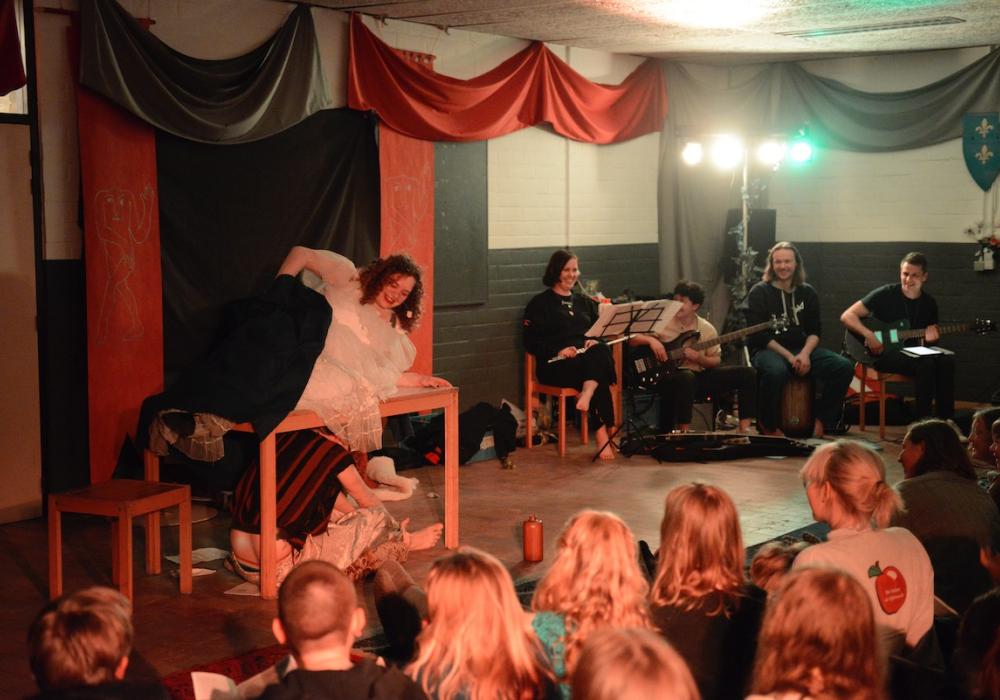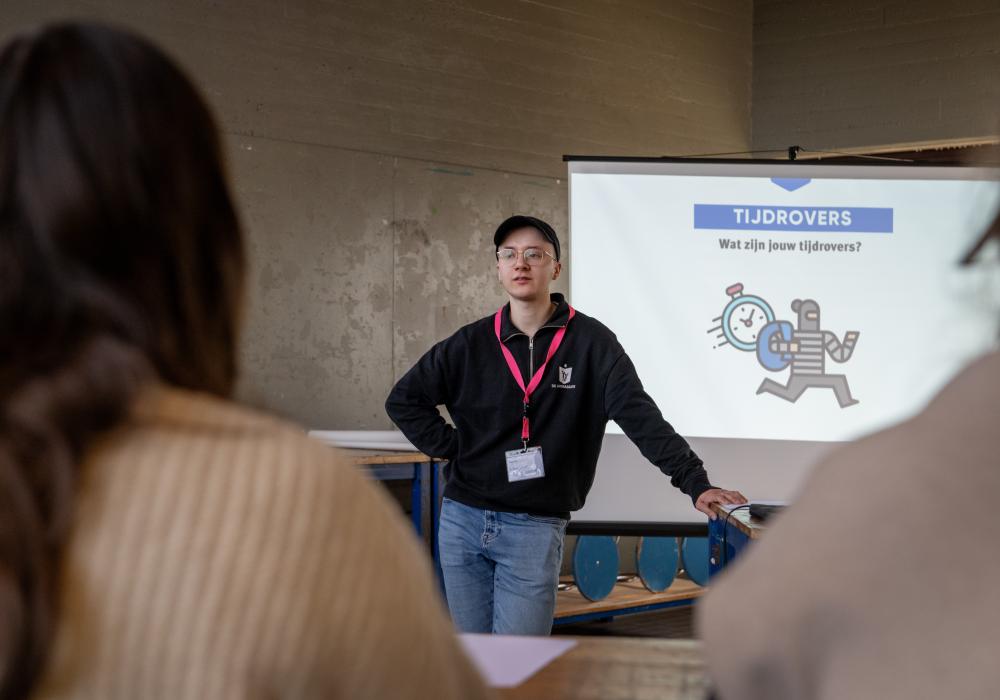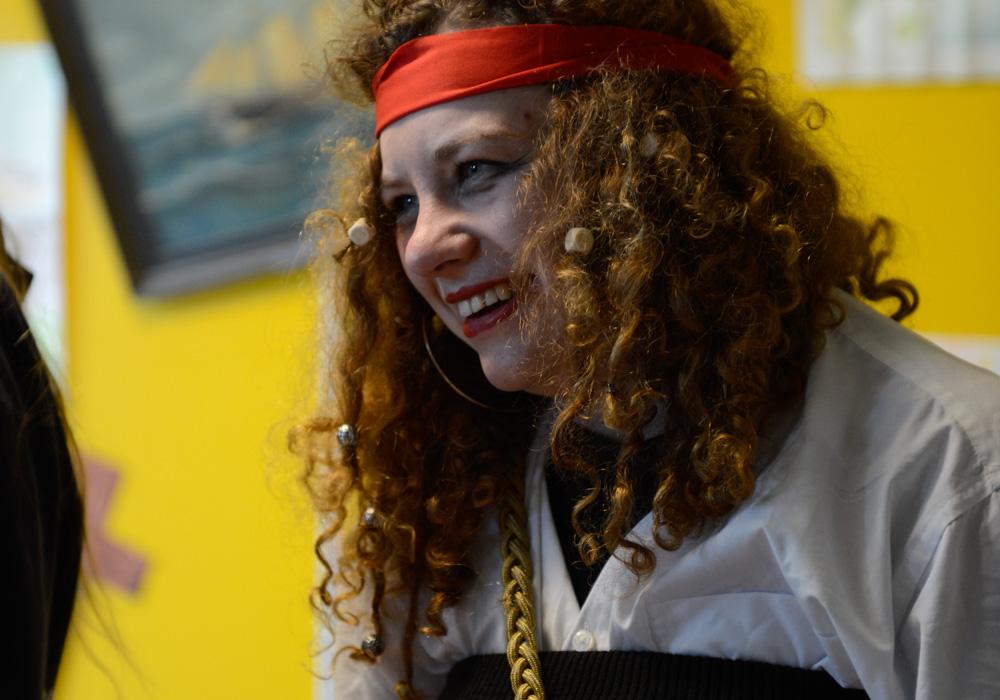Youth Work in …. Flanders
In Europe, some people refer to Flanders as a ‘youth work paradise’. What makes Flemish youth work unique? And is it all really that rosy? Two youth workers lift a corner of the veil. ‘Our starting point is always: young people who start thinking about what they need or what they are missing.’
Lessons learned
Almost every professional youth worker in Flanders has a background as a volunteer. Lynse and Senne are no exception. Like many young people, Lynse became involved in the association where she was first a member as a child: “It's really a home away from home, it gives me a sense of family.” Young people also set up new initiatives to fill a gap for young people like themselves, as Senne did (see box).
Senne Misplon (°1998) has a degree in primary education and a Master's degree in gender & diversity. He tried out a lot of different youth movements before finding his niche as a volunteer for a youth movement for transgender young people. ‘First as a youth leader, then as a spokesperson, and finally as a board member.’ He has now been working for about two years at De Ambrassade, the Flemish intermediary organisation that supports recognised youth work organisations. There, he provides training, support and coaching to organisations and youth workers.
Lynse Vlerick (°1996) has a degree in social work and has been a member of a local creative youth association since childhood. At the age of 16, she started as youth leader. Today, she trains aspiring youth workers on a weekly basis. After gaining work experience in hybrid learning and labour market guidance, she is now a youth officer at the City of Ghent, supporting youth work initiatives. She is also responsible for the accreditation of new youth work organisations.
But what have they learned from their many years of volunteering? Lynse: ‘Without a doubt: working together. At school, you are often forced to do group work, but you can always freeride. In youth work, you simply cannot do that. Because of your responsibility towards each other and towards the group of young people, you simply have to cooperate. You can't do youth work on your own!” Senne: “And if you don't want to cooperate, you have to find another hobby (laughs).” “To be clear, cooperation doesn't always go smoothly in youth work. I've often been frustrated. But I've also learned a lot from it.”
Senne: “Almost everything I do in my current job, the skills I need, I learned during my time as a volunteer. Like project management: whether it's a camp or a spaghetti party, you develop the skills to create something bigger together. Secondly, coaching: helping others, encouraging them, supporting them, helping them grow. I do that all day long in my job.”
How do you become a youth worker in Flanders?
Lynse: “There are accredited courses for volunteers (see Fact & Figures below), but there is no formal training to become a professional youth worker (in higher education). But I don't mind: it gives us a very diverse range of youth workers with a strong inner drive. They are motivated to do something with young people, and that's enough to get them started. It makes it very accessible. And I am convinced that if you start imposing things, that inner motivation and desire to continue learning would be lower.”
Senne: ‘A degree is no guarantee of quality either. I see it as a strength of Flemish youth work that we also focus on informal and experience-based learning for youth workers themselves. The downside is that from an external perspective, for example that of parents, this principle is sometimes more difficult to understand. Parents do not always grasp how youth work is not only a learning environment for their children, but also for the young youth work volunteers.”
Lynse: “What's special is how, in the search for that common ground, a network has been formed within the sector in which experiences are shared, critical thinking takes place and people listen to each other. It is only through cooperation that this can be achieved.” Senne: “And that's not a given, because we could also see each other as competitors or remain on our own little islands.”
The secrets of strong youth work
Lynse: “In our view, youth work is for and by young people. That means that initiatives in civil society by young people in their free time are the starting point. So we don't say ‘this kind of youth work is needed’ or ‘we want this type of organisations’. Instead, they say to us ‘we are here now, pay attention to us’. The starting point for us are young people who think for themselves about what they need or are missing. Because how can I, from here, from my office or from this building, decide what young people need? For example: young people who all skate individually but actually want to do it together and therefore want to start a skateboarding organisation.” Senne: “That bottom-up, demand-driven approach ensures a diverse youth work landscape.”
Senne: “I'm often amazed at how deeply rooted volunteering is in youth work organisations. In some highly professionalised organisations, employees are the driving force, but generally speaking, it is the volunteers who are really in charge. The board, the chairperson, even the coordinator: they're all volunteers who do this alongside their job or studies. I think that's brilliant, and I think we're unique in Europe in that respect. And it's also about young people, like a bunch of 16-year-olds who take a train with a whole group of children to go to camp. Try that yourself (laughs).” Lynse: “By allowing young people to participate at the policy level, at the organisational level, you empower them. You give them a lot of confidence.”
Lynse: “Some young people and youth organisations demonstrate a lot of courage to experiment. I find this very fascinating. Youth organisations that work at the intersection of fields such as sport, culture and youth fill needs that others sometimes don't (want to) think about. An organisation that combines circus, yoga and VR: no idea how they do it, but brilliant, right?”
Senne: “The range of activities offered by open youth work also means a lot for the development of young people. It's an approach where you ask young people, ‘What do you want to do? You want to organise a performance or a DJ course? Great. We'll give you some support and resources. And for the rest: just go for it!’ There are lots of young people with ambition and entrepreneurial spirit. Open youth work gives them a place where they can learn, through trial and error.”
Lynse: “One type of organisation I admire is the self-organisations (organisations for and by people with an immigrant background). They reach young people who don’t feel at home in regular youth work, but who do need that sense of community. Without any knowledge of youth work methods, they take the initiative, based on honest self-reflection. They realise: ‘We’re just sitting here… and we can do more.’ This kind of entrepreneurial attitude is very powerful to me.”
Challenges for the future
Senne: “It's very positive that we have a well-subsidised sector thanks to the Youth Decree (see box). The downside is that the bar is set high for associations to obtain recognition and financial support. They put a lot of time and energy into fulfilling the requirements and accountability, time they would rather spend on working with young people. In general, this administrative burden is a problem. Lynse: “Responsible use of public funds is important, but it is problematic when youth workers have to focus too much on fundraising. Which also requires a lot of know-how, by the way.’
Senne: “Besides, even though youth work receives a lot of operating subsidies at the Flemish level, if you compare that amount to the entire budget of the Flemish government, it's only 0.1 per cent. In order to increase the societal recognition of youth work, I think we also need more research. We need figures that map out the impact of youth work; that's what we're missing.’
Defining youth work
Senne: ‘Our answer to the question “what is youth work” can be found in the #Jeugdwerkwerkt framework (see separate box). This framework was developed by De Ambrassade in collaboration with many other organisations. It provides a shared language for youth workers in Flanders. Regardless of the type of youth work you do, we share one DNA, including identical goals and principles: you start from the power of the group, you put children and young people at the centre and you strengthen their voice. And I think that's magical, that we've now created something together and can say ‘this is what we do’.”
#youthworkworks
Why does youth work ‘work’? To answer this question, a common framework was developed in 2018 and updated in 2023. It sets out the mission of youth work, the DNA of youth workers, the youth work effect and ambitions within six priority themes. The framework is accompanied by an ongoing public campaign based on the hashtag #jeugdwerkwerkt (youth work works).
Lynse: ‘It's great to see lots of new initiatives, often at the intersection of sport and culture. But it's becoming increasingly difficult to categorise activities. For example, to what extent does sport with young people constitute youth work? This leads to increasingly difficult discussions: what is youth work? What should we support as a government? It often boils down to ‘what you're doing is great, but it doesn't fit into our (youth work) box’.
Lynse: There are also a lot of expectations. Policy makers sometimes use youth work as a tool to tackle social problems. In addition, there are increasingly high expectations from parents in voluntary youth work, which can lead to difficult communication. Young youth work volunteers are not educators or psychologists, and they don't need to be! They commit their time in their free time. We need to make sure that the pressure on them doesn't increase. People often say that it takes a village to raise a child. Youth work can play an important role in this, providing many wonderful memories and experiences.
Facts & figures about Flemish youth work
Youth work reaches 1 million children and young people out of a total population of 2,72 million aged between 0 and 30.
- The Flemish government provides recognition and subsidies to associations with a national reach and associations for special target groups (children and young people with disabilities and in vulnerable situations) through the Youth Decree. This concerns around 120 organisations. In addition, there are also project subsidies for 85 projects, including in open youth work and for experimental youth work.
- Local authorities recognise and subsidise local activities. It is estimated that there are almost 8,000 local youth work initiatives throughout Flanders.
- Via the National Agency JINT, European project funding is available. In 2024, 151 project were granted.
Youth work in Flanders is multi-layered: different government levels have responsibilities and provide financial support.
- Volunteers have a pivotal position in Flemish youth work.
- An estimated 66,000 young people (aged between 15 and 25) are active as youth work volunteers, compared to around 3,200 professionals. For many organisations, it is an important issue how to best reach, involve, retain and motivate (new) volunteers.
- The training of volunteers is established in law in the Youth Decree and is also strongly regulated. Nearly 50 organisations issue around 6,000 certificates each year to young people who have completed training and an internship as a (head) animator or instructor.
Author: Rilke Mahieu (JINT)
Pictures: Sien Verstraeten, Lynse Vlerick
